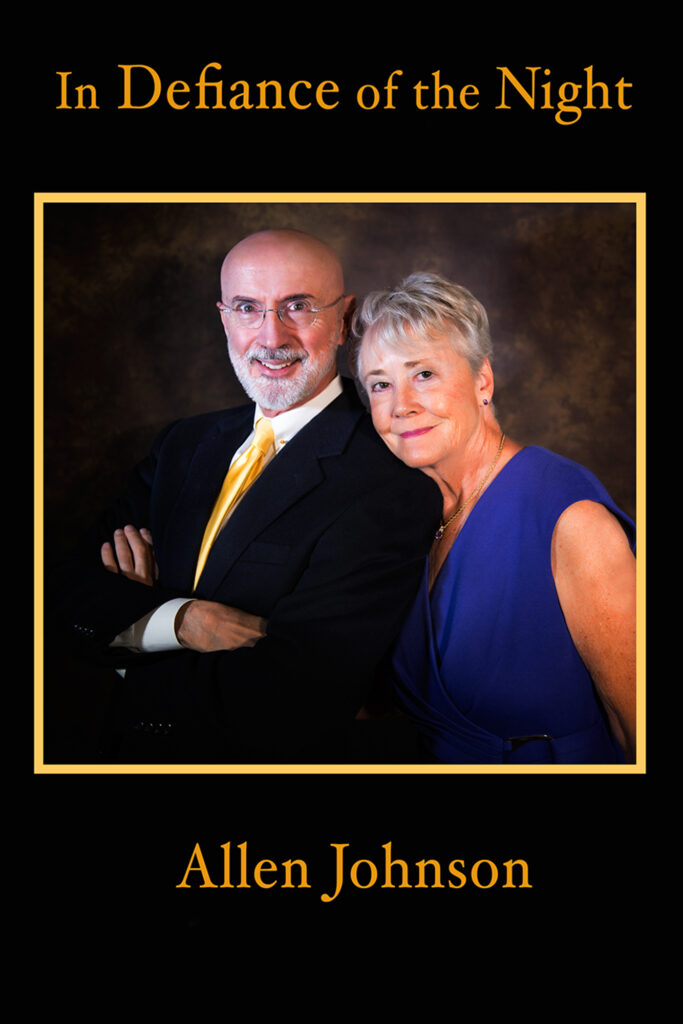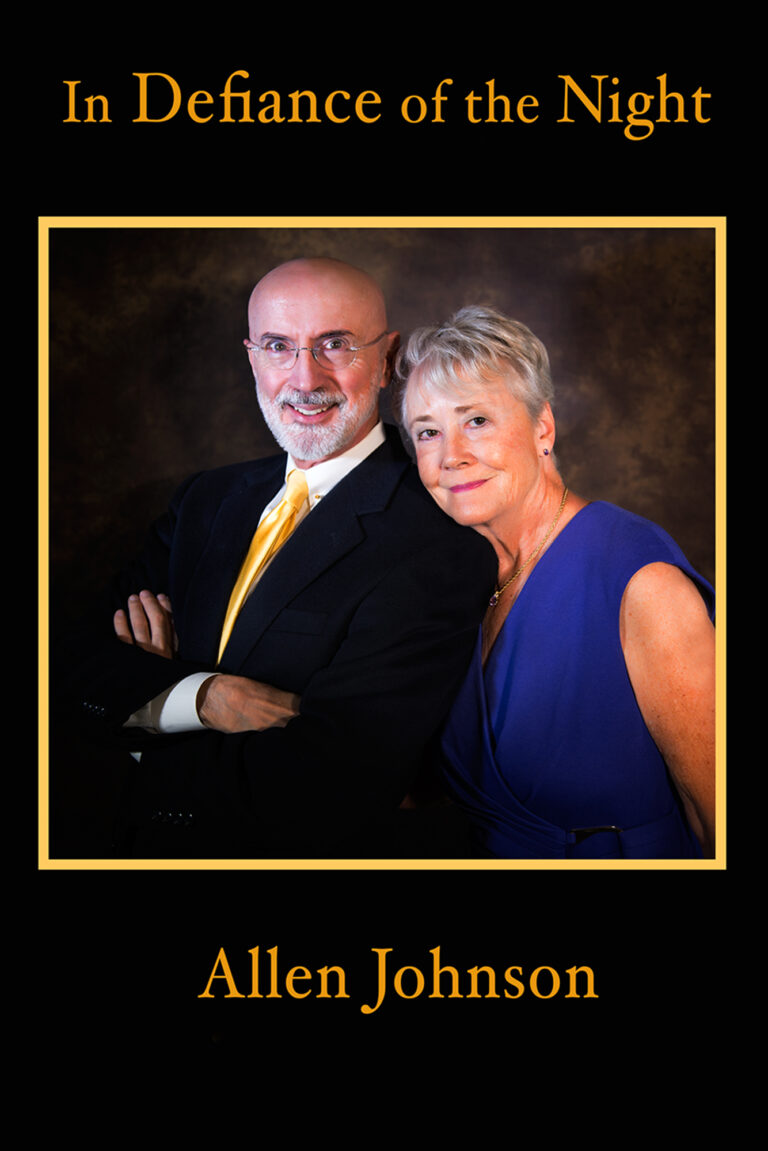On April 27, 2022, an expiration date was stamped on my forehead. It happened when the surgeon said, “Allen, you have cancer.”
Although I’m seventy-six years old, I never before thought of myself as having a time limit on my life. Oh, sure, I knew I was not immortal, but the end of my days was destined for some foggy day in the distant future. Not anymore. Today, I have a new perspective.
Before that moment in April, I had one mission in life: to be the caregiver for Nita, my wife for over fifty-three years. Nita was diagnosed with Parkinson’s Disease in 2016. In her prime, her weight remained constant at one hundred and twenty-five. She now weighs eighty-five pounds. Though it breaks my heart to admit it, she’s easily confused and anxious about the most mundane things. She broods over her pill organizer, puzzling over when to take her medication.
Nita’s spirit has not changed. She is now as she has always been—sweet and gentle as rain. Nor has my love for her diminished. If anything, it has swelled—my heart filled with tenderness for the woman I have loved so deeply for so many years.
Today, when Nita is bewildered by the time of day—Is it morning or evening?—I smile at her. Not out of mockery of course but with a crush of endearment. It’s the same smile I reserve for children captured by the wonderment of a new day. I smile at her rekindled innocence. And my soul roils with a yearning to help her find her way, to assure her everything is all right.
Those feelings have not changed nor will they. But my responsibilities have expanded. Now, I’m both challenged and honored to take care of us both—and more.
Why did I end the previous paragraph with the words “and more”? I’ll explain.
As I was driving home from my doctor’s appointment—knowing my life was ephemeral—I wondered how I should best live my last chapter, however long the tale might spin out.
Suddenly, I was reminded of three families from my neighborhood, all with children who wished to be tutored in English composition. When I arrived home, that was the first call I made. “Let’s set a date for the first lesson,” I said to one of the mothers.
I even started to visualize how the first writing session would play out. I would invite the youngsters into my living room. I’d tell them writing was about the art of observation. “If you’re unable to see, you’re unable to write,” I’d explain. “Now, watch every detail of my actions.”
Then, I’d leave the room, return by peeking around the corner, take one step forward and withdraw the step. Looking over my shoulder, I advance. My gaze lowers. With a furrowed brow, I crouch and pick up…something. As I slowly rise, I feel its texture. Then, as I slip the item into my pocket, I cock my head. What was that sound, and why has it quickened my breath?
At scene’s end, I’d ask the children to write what they saw—perhaps filling in a bit of the mystery.
That was my first thought. Not to marinate in my misfortune, but to ask how I might make a small difference in the world. Is it possible the magic of writing might take root in the heart of a child? Could that young scholar be my legacy? And would that not be better than waiting for the final big sleep?
I don’t know how or when my life will end. I may have one good year. Maybe two or three or more. Really, that’s of little importance although I would like to be well enough to keep Nita safe until her last breath. For me, the challenge, and ultimately the test of my character, is to find purpose in the remaining days: to be courageous when ill, giving when well, and grateful when twilight drifts into a starry sky.


